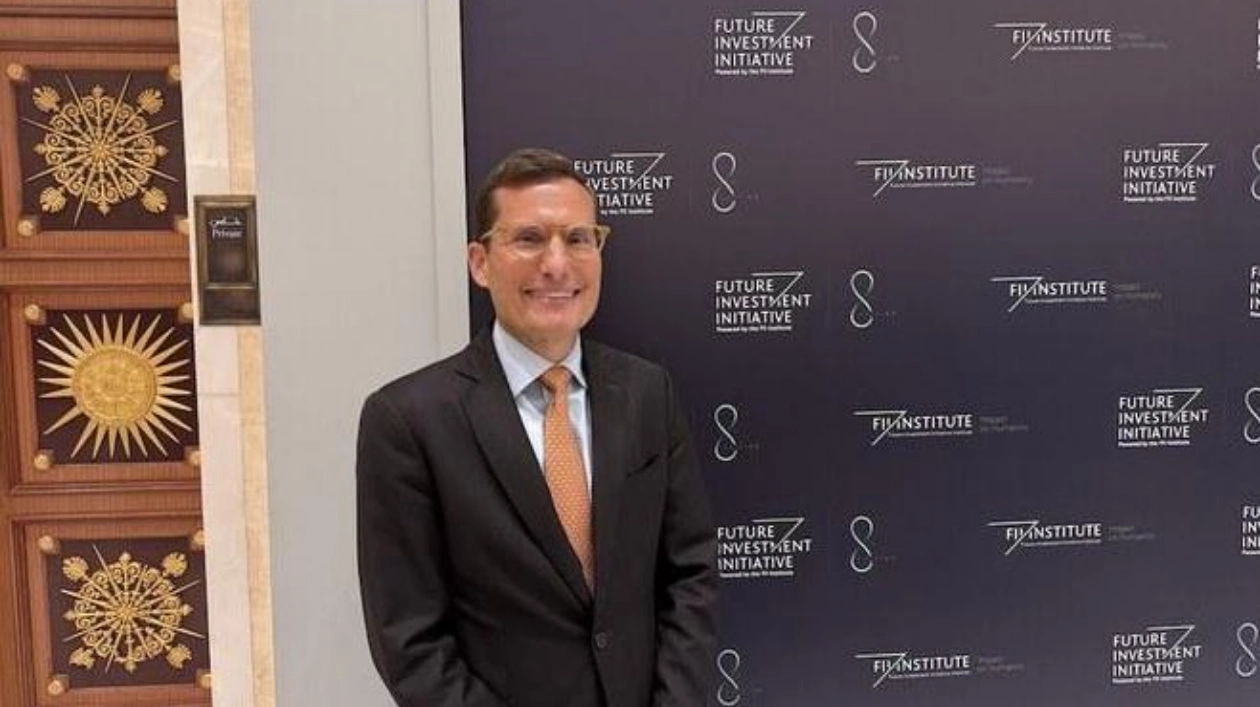RIYADH: Saudi Arabia has reached a remarkable 98 percent adoption rate for contactless payments in in-person transactions, a significant jump from the mere 4 percent recorded in 2017, according to a senior Visa executive.
Speaking to Arab News at a forum preceding the Future Investment Initiative event, Andrew Torre, Visa’s regional president for Central and Eastern Europe, Middle East, and Africa, credited this swift digital transformation to government backing, escalating consumer demand, and the company’s technological advancements.
This aligns with Saudi Arabia’s Vision 2030, which aims to enhance digital commerce and establish the Kingdom as a global innovation hub, thereby strengthening Visa’s collaborative efforts with partners in the country.
“If you consider face-to-face transactions in the Kingdom, they were previously handled with a card using chip and PIN technology; that has entirely transformed, and now nearly 98 percent of transactions are contactless,” Torre mentioned during the FII New Africa Summit in Riyadh.
He further explained: “In 2017, only 4 percent of transactions were contactless, and now it’s 98 percent, either by tapping a card or, more commonly, tapping a phone, making payments fully digital. This is one of the fastest transitions we’ve observed globally.”
In support of this shift, Visa has established an innovation center and office in Riyadh’s King Abdullah Financial District, marking 40 years of the company’s presence in Saudi Arabia.
This facility, Visa’s fourth global innovation center, is designed to advance digital payment solutions through technologies such as artificial intelligence, biometrics, and the Internet of Things, fostering partnerships with local fintechs, banks, and government entities.
Sultan Al-Obaida, the chief commercial officer of the KAFD Development and Management Co., emphasized the robust growth of the Saudi banking sector, which saw a 9.3 percent increase in 2023 and a 3.9 percent rise in the first quarter of this year.
“Our strong financial presence bolsters Riyadh’s status as a leading global financial center, attracting a distinguished array of fintechs, banks, and payment companies, and we are thrilled to welcome Visa to this esteemed group,” he stated.
The Visa center capitalizes on Saudi Arabia’s leadership in digital payment best practices, positioning the Kingdom as a hub for global fintechs to collaborate and innovate, according to Torre.
“We’ve been in the Kingdom for 40 years, so we’re deeply familiar with the market. When Vision 2030 was unveiled, a significant part of it focused on digitizing financial services and payments. We’ve been fully supportive of the government’s initiatives,” Torre noted.
He added: “Our new innovation center allows us to co-create the future of payments with local partners, driving innovation that aligns with the Kingdom’s Vision 2030 objectives.”
Torre highlighted that Saudi Arabia’s fintech-friendly regulatory environment, led by the Saudi Central Bank (SAMA), has been crucial in fostering digital evolution. SAMA’s early adoption of a sandbox for fintech testing has enabled new players to innovate in embedded finance and cross-border remittances.
“They’ve done exceptionally well—they understand the need for innovation and are nurturing it through their sandbox approach. They were among the first to adopt a sandbox to collaborate with fintechs,” Torre added.
Beyond in-person retail, e-commerce has also seen a notable surge, growing at an annual rate of 30 percent. Torre attributed this to the pandemic’s acceleration of online shopping and the convenience it offers consumers.
The rise in digital payment adoption has also empowered small businesses, providing them with secure and efficient transaction options. “Digital payments offer visibility and ease, supporting the growth of small businesses,” Torre said.
Looking ahead, the Visa executive foresees a future where AI will further streamline payments, with technology automatically handling transactions based on user preferences.
“If you consider retail payments, which are now 70 percent digital, there’s still 30 percent that relies on cash. We anticipate continued rapid adoption of digital payments, which will gradually eliminate cash from the ecosystem,” Torre stated.
He concluded: “We believe e-commerce will continue to grow and accelerate. It is convenient, and we foresee it becoming more omnichannel as well.”
Visa’s involvement in Saudi Arabia exemplifies how collaboration between private companies and regulators can drive substantial advancements in digital payments, supporting the Kingdom’s ambition of becoming a cashless society.
Source link: https://www.arabnews.com






